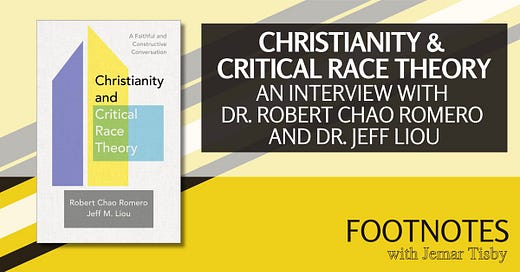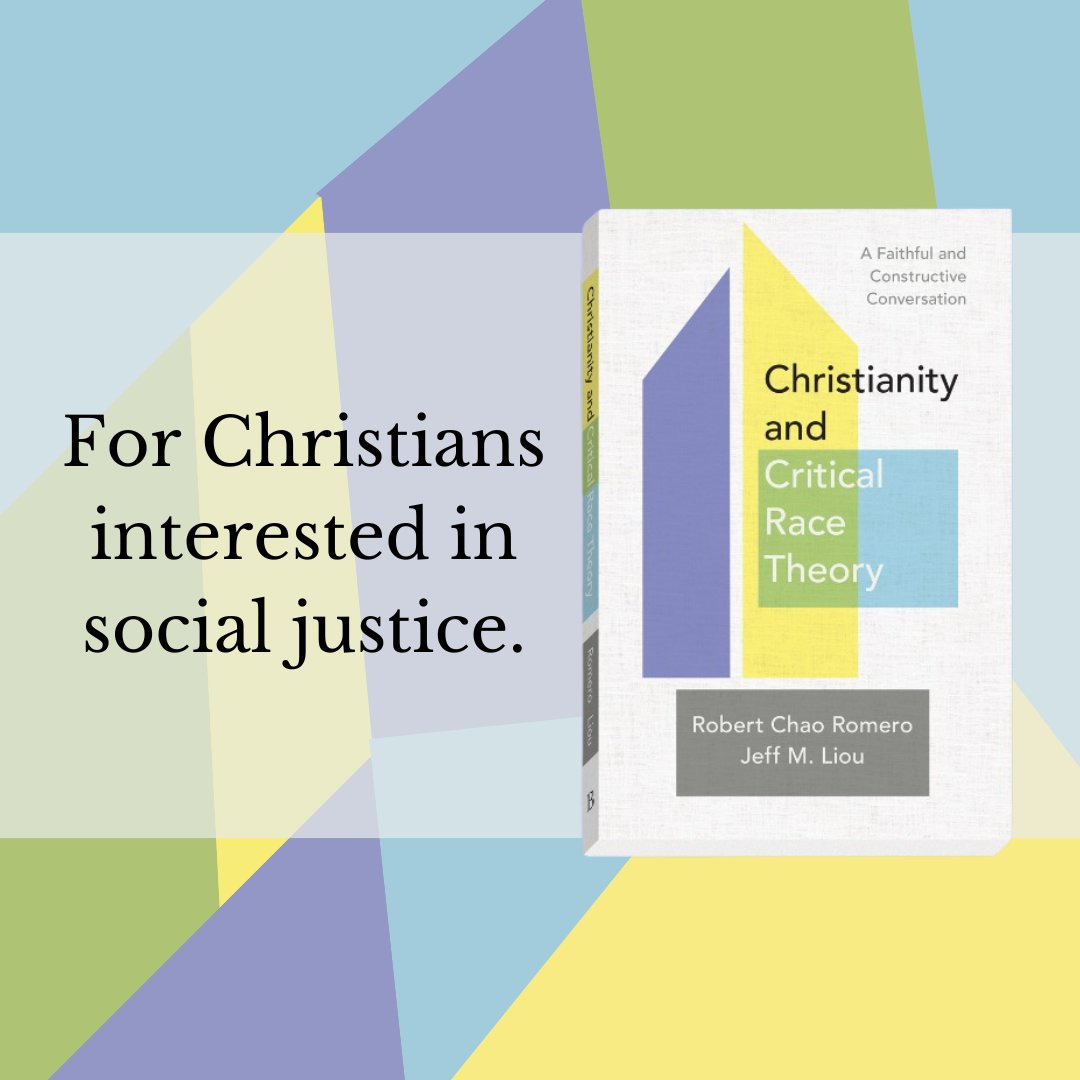Christianity and Critical Race Theory
A new book by CRT-trained Christian scholars puts the faith and the theory in conversation.
I’ve got so much to share with you that I think will help you on your journey of racial justice! Would you help me provide this material by becoming a paid subscriber?
The term Critical Race Theory (CRT) has become one of the latest epithets hurled at people and initiatives designed to promote racial progress.
The attacks on Critical Race Theory are more than rhetorical. Right-wing legislators in dozens of states have introduced bills that propose to ban what they characterize as CRT.
According to the CRT Forward project at UCLA Law:
Since September 2020, a total of 214 local, state, and federal government entities across the United States have introduced 699 anti-Critical Race Theory bills, resolutions, executive orders, opinion letters, statements, and other measures.
These bills purport to limit “indoctrinating” people with harmful ideas about race and suppress any teaching that suggests that the United States was established with racism at the foundation.
But efforts to ban Critical Race Theory in classrooms and public institutions sit on a throne of lies. They rely on deliberate misinterpretations, mischaracterizations, and fear-mongering.
People who understand CRT the least and have not engaged in any formal study of the theory often scream the loudest about it.
By contrast, Dr. Robert Chao Romero and Dr. Jeff M. Liou are both PhD scholars who studied Critical Race Theory in law school or at the doctoral level.
They have written a new book, Christianity and Critical Race Theory: A Faithful and Constructive Conversation, to cut through the propaganda and address how CRT and the Christian religion interact.
For all those who demand a definition of CRT, Chao Romero and Liou provide the following:
What is CRT? Critical race theory examines the intersection of race, racism, and US law and policy. In other words, it looks at how US laws and public policy have been manipulated and constructed over the years to preserve privilege for those considered “white” at the expense of who who are people of color.
They also outline some basic tenets of CRT. Quoting other scholars, they give these examples:
The belief that racism is ordinary: “Racism is ordinary, not aberrational—’normal science,’ the normal way society does business, the common everyday experience of most people of color in this country.”
Interest convergence or material determinism: “Because racism advances the interests of both white elites (materially) and working-class Caucasians (psychically), large segments of society have little incentive to eradicate it.”
The social construction thesis: “Race and races are products of social thought and relations, not objective, inherent, or fixed, they correspond to no biological or genetic reality.”
The voice of color thesis: “Because of their different histories and experiences with oppression, black, American Indian, Asian, and Latina/o writers and thinkers may be able to communicate to their white counterparts matters that the whites are unlikely to know.”
All that said, the authors note that CRT is a broad and diverse field. They do not agree with all that CRT theorizes, and many scholars of CRT disagree with one another at various points.
One difference the authors note as Christians is that “CRT largely lacks a hopeful eschatological vision of the beloved community of all.”
The Bible ends with a revelation of heavenly worship that includes people of all tribes, nations, and tongues in unified yet diverse assembly (Revelation 5:9; 7:9). Such a triumphant and certain vision of the future is often lacking in CRT, and this is where Christians can understand how their faith augments or corrects secular theories.
I got to interview Dr. Robert Chao Romero and Dr. Jeff M. Liou on my podcast, Footnotes. We elaborate on the definition and tenets of CRT as well as how to put the theory and the Christian religion in dialogue.
Listen here and be sure to subscribe and rate the podcast!
Get the book HERE.






Really appreciate this clarity in cutting through false narratives related to CRT. I remind people that CRT is a decades old empirical research product. It is not a set of anti-White principles. Increasingly, people trying to use critical race theory to justify personal agendas and dismissing important topics, such as Black history, are being challenged with facts and godly influence.
I know you have mention this in previous articles, but I just believe this quote needs to be cited each and every time this topic is brought up since it explicitly states the motive of one of the most prominent anti-CRT crusaders. It makes the agenda very clear.
“We have successfully frozen their brand—"critical race theory"—into the public conversation and are steadily driving up negative perceptions. We will eventually turn it toxic, as we put all of the various cultural insanities under that brand category.“ - Christopher Rufo